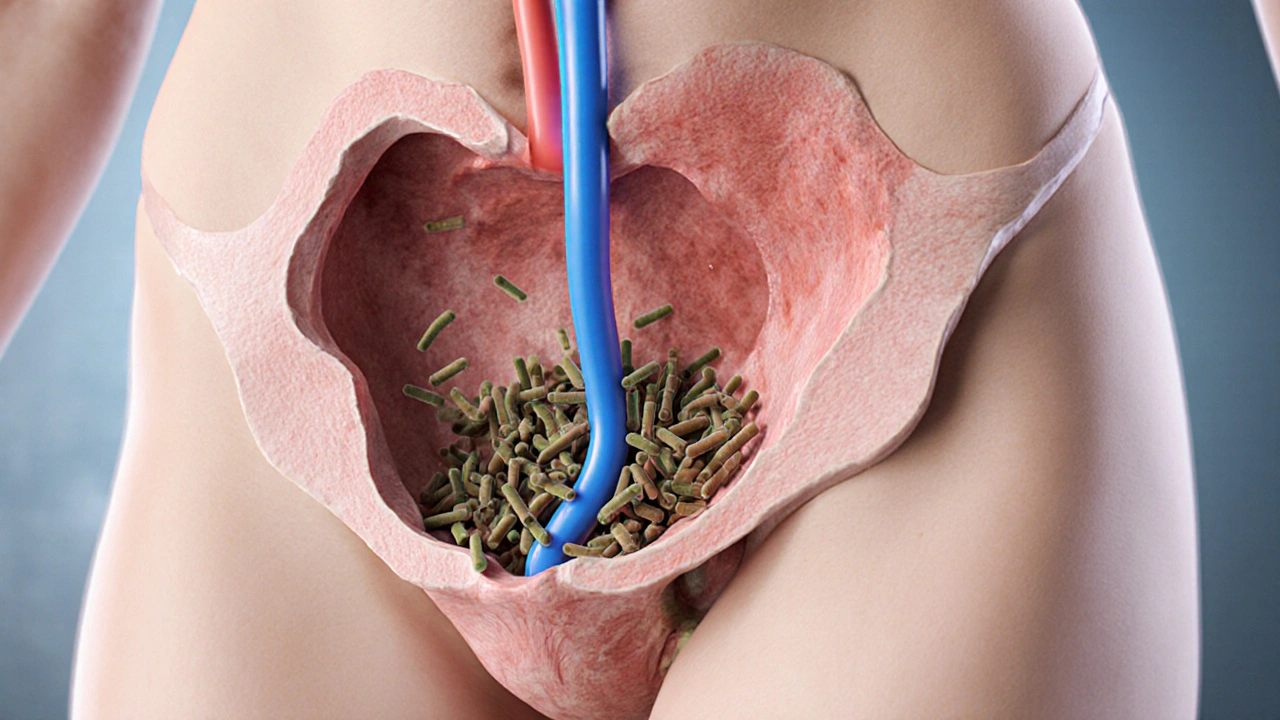Urinary Tract Infection (UTI) Overview
When dealing with urinary tract infection, an infection that can affect any part of the urinary system, from kidneys to urethra. Also known as UTI, it often causes burning during urination, frequent urges, and sometimes fever.
Most UTIs start when bacteria enter the bladder. That's why Antibiotics, medicines that kill or stop bacterial growth are the frontline treatment. Choosing the right drug—whether a short‑course of trimethoprim‑sulfamethoxazole or a broader option like Augmentin—depends on the infection’s severity and local resistance patterns. Doctors also consider side‑effects and cost, so you’ll often see a comparison of options before a prescription.
The infection typically begins as a bladder infection, also called cystitis, which is the most common form of UTI. Symptoms include a strong, urgent need to pee, cloudy urine, and lower abdominal discomfort. If left untreated, the bacteria can travel upward, turning a simple cystitis into a kidney infection (pyelonephritis), which is far more serious and may require hospitalization.
Several factors raise your odds of getting a UTI. Kidney stones, hard mineral deposits that can block urine flow create a breeding ground for bacteria. Likewise, a urinary catheter, a tube inserted to drain urine, can introduce microbes directly into the bladder. Both situations disturb normal urine drainage, making it easier for germs to linger and multiply.
Practical steps to keep UTIs at bay
Staying hydrated swells the bladder and flushes bacteria out—aim for at least eight glasses a day. Wiping front‑to‑back after using the restroom, urinating before and after sexual activity, and avoiding harsh feminine products also reduce risk. If you’ve had recurring infections, your doctor might suggest a low‑dose antibiotic regimen or investigate underlying issues like stones or catheter use.
Below you’ll find a curated list of articles that dive deeper into each of these topics, from antibiotic comparisons to managing kidney stones, so you can make informed choices and tackle urinary tract infections with confidence.

Can Probiotics Prevent Cystitis? Evidence, Strains, and How to Use Them
Explore how probiotics may lower cystitis risk, the science behind specific strains, dosage tips, safety advice, and a practical checklist for prevention.